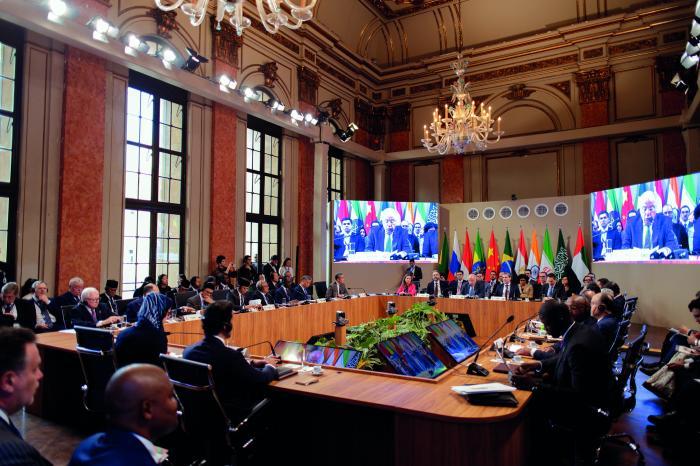
Strengthening "preventive diplomacy" and avoiding the prolongation of armed conflicts was one of the topics discussed at the meeting of Brics Foreign Ministers, which began yesterday in Rio de Janeiro, Brazil.
At the opening, Brazilian Foreign Minister Mauro Vieira highlighted as "vital" the role played by the bloc, due to the "converging global and regional crises, with humanitarian emergencies, armed conflicts, political instability and the erosion of multilateralism", according to efe agency.
"These crises challenge the very foundations of international peace and security, and demand a renewed commitment to collective action," Viera said.
He recalled the "devastating" situation in Palestine as a result of Israeli genocide, and called for reform of the multilateral bodies that govern the world order, such as the UN Security Council.
A joint response to the tariff war declared by President Donald Trump, and all that it has entailed for international trade, will also be discussed. In this regard, the head of Russian diplomacy, Sergey Lavrov, in an interview to the Brazilian newspaper O Globo - quoted by RT-, expressed that it is a little "premature" to talk about the group's transition to a single currency, although he stressed that "de-dollarization has become one of the key trends in the development of the world economy", due to "distrust in the international financial mechanisms controlled by the West".
He argued that the bloc strives "to facilitate transactions without interruption", and there are already "good results", and indicated that the share of the ruble and currencies of friendly countries totaled 90% in transactions between Russia and the Brics states, by the end of 2024.
According to the agenda of the event, the discussions should be completed today, in which the 11 foreign ministers of the member countries, together with the nine associate nations, are expected to draw up the charter that will include the decisions to be taken by the presidents of the Brics countries at the final summit, scheduled for July 6 and 7.
The group is made up of 11 members: South Africa, Brazil, China, Egypt, United Arab Emirates, Ethiopia, Indonesia, India, Iran, Russia and Saudi Arabia; the latter with guest member status, as it has not yet completed the last stage of accession.








